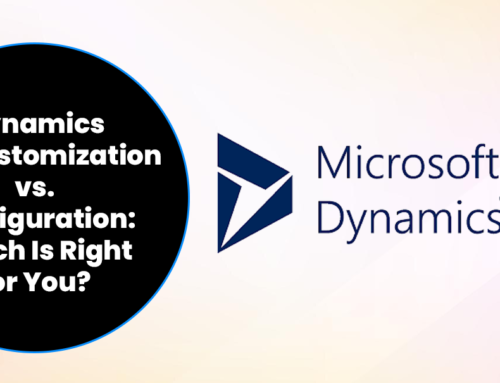
Enterprise resource planning (ERP) platforms are amongst the largest and most comprehensive software solutions you will ever encounter. Therefore, it should be no surprise that ERP solutions can be rather challenging when it comes to integration. You have a massive multi-featured software platform that may require connections to dozens of third-party platforms — each with a varying degree of integration-friendliness to your specific ERP software solution.
A single ERP integration is hard enough; multiple integrations complicate things exponentially. This begs the question: how do you overcome some of the more common ERP integration challenges?
What is ERP Integration? Why Do You Need These Integrations?
In the world of ERP software, integration refers to the practice of forging a connection between the ERP platform and a separate, third-party software system, app, database, or portal.
ERP integrations can involve many different functionalities, including the following.
- Messaging and Chat Apps
- Databases and Data Silos
- CRMs
- Point-of-Sale Systems
- Inventory and Logistics Platforms
- Manufacturing Software
- Human Resources (HR) Systems
- Payroll and Accounting Data
- eCommerce Platforms
- Shipping and Logistics Services
- Design and Wireframe Visualization Platforms
ERP integration revolves around the idea that it’s impractical to reinvent the wheel. Generally, a company may opt for integrations in scenarios where a specific feature is not available within their ERP platform. That same organization may also happen to be using a third-party solution that happens to be very effective. In these cases, integration simply makes sense.
But what happens if you run into challenges with ERP integration? Compatibility issues. Troublesome APIs and middleware. There are a few strategies to consider as you seek to overcome these obstacles.
Re-considering Your Choice of an ERP Platform or Third-Party Solution
The ERP marketplace has no shortage of options and selecting an enterprise software solution can be a complex, time-consuming process. Most are very familiar with the industry heavyweights such as SAP and Oracle, but there are dozens of lesser-known solutions that an organization may consider. Some of these less mainstream ERP platforms are industry-specific, while others may have a particular feature set that a company finds to be especially appealing. Others still may choose an enterprise software system for its pricing.
Smaller or less mainstream ERP platforms can bring a great ROI and incredible operational and strategic benefits to a business. But integration is one area where you can experience major drawbacks and challenges.
Significant or widespread ERP integration issues are most common with many of the smaller, less mainstream enterprise resource planning software systems. Integrations require APIs and software. While developers of the major ERP software systems and the most commonly-integrated third-party platforms traditionally work together to ensure full compatibility, this doesn’t always happen with many of the smaller platforms. Therefore, it may be prudent to reconsider your selections to improve the chances of a smooth integration.
If you have only just selected an ERP system and have not yet started the implementation process, reconsideration may be a viable option. If you are locked into your current enterprise software solution, you might instead reconsider your choice of third-party platform for integration — find another comparable tool, app, or software program that will allow for seamless integration. This may necessitate a data migration and a bit of re-training for your users, but this can still represent the easier and more cost-effective option when compared to the alternatives: developing a custom solution or foregoing the integration entirely.
Developing Custom APIs and Middleware for ERP Integration
Another common ERP integration challenge involves the missing or imperfect API or middleware. APIs — application programming interfaces — are a type of intermediary software that allows two programs to connect and communicate. An API is comprised of functions that facilitate two platforms to interact, providing access to specific software features, microservices, and operating systems.
APIs are essential for achieving an integration, but here’s the problem: they can be software-specific. This means that a third-party platform’s API may not work for your chosen ERP software. Or, it may not work as expected (or as needed.) This scenario requires the development of a custom API.
Integration middleware can pose a similar challenge. Middleware is a type of software that is required to facilitate the integration. Middleware, such as an API portal program, provides functional capabilities to software systems, databases, networks, and other technology that may be involved in the integration process. Like an API, the available middleware may not work with your ERP platform — or it may not work as needed. The solution is the development of a custom solution that will allow you to achieve a successful integration.
Do You Really Need This ERP Integration? – Developing a Custom Solution or Using an Add-On Module
Before you delve into a complex integration project, you may want to consider if you really need this specific integration at all. Would it be easier and more cost-effective to forego the integration entirely in favor of a custom ERP development project that would allow you to add a particular functionality or feature to your existing ERP platform?
Sometimes, it makes more sense to create your own equivalent of the third-party feature(s) that you sought to integrate. A custom development project will typically carry a fairly hefty price tag, but even so, this is often the more practical option, especially in cases where the third-party interface fails to effectively meet your needs. Consider developing your own solution with a custom ERP development project to side-step integration challenges entirely.
Another option: add-on modules. There are third-party developers who create modules or plugins that can be used to add capabilities to an enterprise software platform. There are quite literally hundreds of these add-ons available for many of the larger, more popular ERP systems. Therefore, It’s possible that you may not even need to pursue a custom development project if a pre-made module already exists for the functionality or feature in question. Many of these add-on module developers are also open to customization projects, so this represents yet another possible solution if you find a near-perfect module that would allow you to side-step a troublesome integration.
Working with an ERP Staffing Firm
Utilizing the resources provided by an ERP staffing firm can go a long way toward overcoming ERP integration challenges. More often than not organizations run into trouble during the integration process due to human error. Hiring ERP professionals is no easy task and with the amount of money invested in the ERP itself, it is crucial you hire the right team.
Ultimately, the best solution will vary according to the exact nature of your ERP integration challenges. You will also need to consider other factors, such as your budget and operational needs. At Cox-Little, we have extensive experience with finding ERP integrations, implementation, and deployment experts in many different industries. Our expert team is ready to guide the way, helping you overcome hiring obstacles that stand in your way. Contact the ERP experts at Cox-Little today to address your enterprise software integration challenges.






Leave A Comment